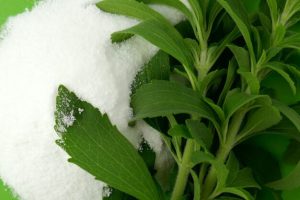
Is sugar your weakness? Many people crave for it. Added sugar is by far the most controversial ingredient in the diet. But even if you don’t have a sweet tooth, it’s tough to avoid sugar altogether. From soda and other sweetened drinks to almost all processed food, nearly everything contains added. They associate sugar with many serious diseases, including obesity, diabetes, heart disease, and cancer. Part of the problem is that most people consume too much sugar without even knowing it.
Fortunately, a wide range of sweeteners and sugar alternatives — both artificial and natural — are available to help all of us reduce the amount of sugar in our diet. Limiting sugar content in our diet is especially important for older adults.
Humans are hard-wired for sugar. Fruit, pastries, soda pop–it starts when sugar molecules bind to taste receptors on our tongue. Then, there’s a sense of pleasure, as our brain lights up with a flood of dopamine and serotonin. And, for the moment, sugar is amazing.
But here’s the kicker. Eventually, that sugar rush comes crashing down, contributing to cavities, obesity, and diabetes. Yet, we crave the sweet stuff.
The problem is that we have an evolutionary mismatch.
The Ancestral Root to Our Sweet Tooth
In time, the taste for sugar kept us alive. Our distant primate relatives would swing in the forest canopy, searching for sweet, ripened fruit, which provided more energy and water than bitter, unripened fruit. Bitter tastes could signal poisonous or inedible foods. So, the preference for sweet, sugary foods developed as an evolutionary trait to keep our ancestors alive.
But this same evolutionary trait that helped our ancestors survive for thousands of years, today puts us at risk for multiple chronic diseases, and shortened longevity.
That’s because, although our palates have remained likely unchanged for hundreds of thousands of years, our culture and agricultural practices have transformed over the past 100 years. We no longer move throughout the day, hunting and foraging for food. Instead, sugar is cheap, plentiful, and easily added to foods ad nauseam.
Today, we live in a peculiar world than our ancestors, a world in which tastes can be deceiving. Rather than seeking sweet foods for survival, sweetness might better signal caution given the abundance of sugar.
Fortunately, for the cautious connoisseur, there are a variety of natural sweeteners without sugar that we can use to trick our taste buds while minimizing the metabolic effects of sugar.
Why eating sugar is bad for us
- Evidence suggests that those who follow diets, which are high in added sugar content, are more likely to develop obesity.
- Sugar can interfere with hormones in our body that regulate satiety and hunger, leading to a caloric surplus and weight gain.
- Evidence associate high sugar intake with poor health and some of the most deadly diseases, including diabetes, heart disease, and cancer.
- Besides causing health problems, sugar is addictive. It releases dopamine in the reward center of the brain, the same response activated by many addictive drugs.
- This leads to cravings and overeating, especially with stressed individuals.
The Best Natural Sweeteners Without Sugar
Stevia

Stevia is one of the most popular sugar alternatives on the market, and it comes from the leaves of a South American plant called stevia rebaudiana. Stevia is about 300 times sweeter than the normal white or brown sugar, so if you’re using it as a sugar alternatives, use a pinch. If a recipe calls for 1 cup of sugar, 1 tsp of Stevia will probably be fine. However, you’ll want to follow the manufacturer’s recommendations, since each stevia product can vary by brand.
Calories and Carbs in Stevia
Stevia, in its pure form, has zero carbohydrates and zero calories. However, most stevia products combine stevia leaf extract with other ingredients such as dextrose, maltodextrin, erythritol, or other fillers to help reduce the sweetness of stevia and mimic the taste of sugar. So, if you’re using a stevia-based substitute that’s combined with dextrose or maltodextrin you’ll still be getting some carbs and calories, and your sugar alternatives will still influence your blood sugar.
Without sugar additives, Stevia will not increase blood sugar and one study has shown it can decrease blood sugar for those with type 2 diabetes, after a meal. At low doses, studies also suggest stevia can have anti-inflammatory and anti-oxidative benefits.

Stevia Digestibility
As for digestibility, most people tolerate stevia well, unless they have mixed the product with sugar alcohol like maltitol. In that case, people often experience diarrhea and bloating.
Stevia Taste
It’s hard to find a sweetener that’s a perfect taste replacement for sugar, and some people find that stevia has a metallic and bitter after-taste. Since it’s about 300 hundred times sweeter than sugar, it’s also a bit too easy to over sweeten things by accident.
I hope this article helped you to gain some knowledge about stevia. Share your thoughts in the comments.
Also, read our other articles on health and fitness here.

